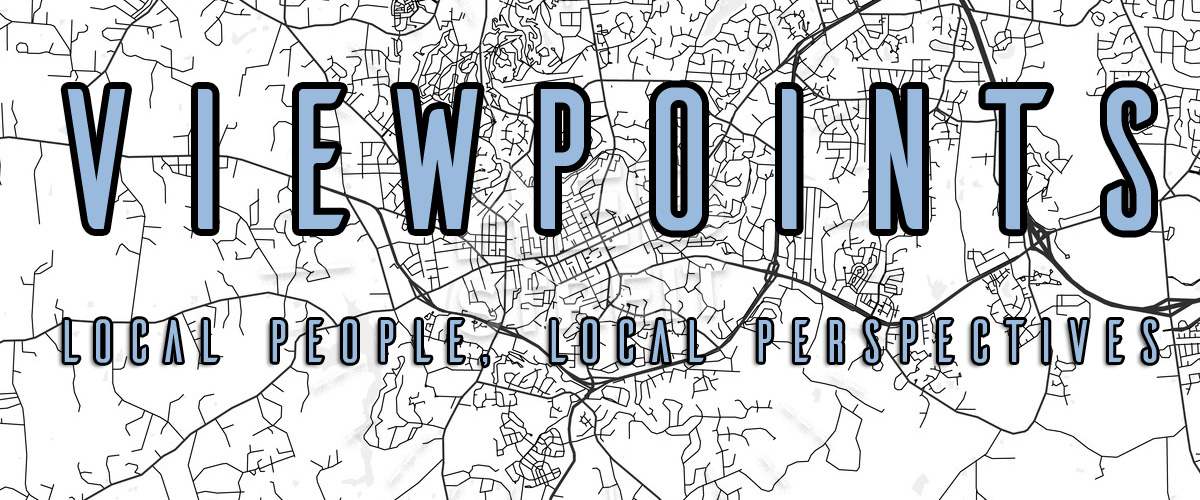
“Viewpoints” is a place on Chapelboro where local people are encouraged to share their unique perspectives on issues affecting our community. If you’d like to contribute a column on an issue you’re concerned about, interesting happenings around town, reflections on local life — or anything else — send a submission to viewpoints@wchl.com
It’s Time We Take Care of Our Own
A perspective from Zara Mehta
On October 25th, Chancellor Guskiewicz sent out a notification to all UNC employees stating that everyone will be required to submit proof of vaccination or receive an approved exemption. Currently, this requirement will have a larger impact on UNC staff, as 87% of the staff has reported vaccination compared to 94% of faculty. With this mandate, there is a significant need to improve trust and assurance in the vaccine and focus on the concerns of the remaining unvaccinated employees, rather than simply mandating vaccination.
Tyrone Williams, a housekeeper in the residence halls and essential in-person employee from the start of the pandemic, tells me that there is mistrust in the vaccine among his co-workers. Since the beginning of the pandemic, housekeepers have had little communication regarding clusters, and have had few paid annual leave days to stay home due to exposures, illness in the family, or children attending virtual school. In addition, although the staff is exposed to greater daily risks and higher levels of stress, this additional burden comes with no added financial compensation. Is it possible that these components are contributing to the current hesitation by some employees to not get vaccinated?
This situation of negligence and injustice is not unique to UNC. With many of our own UNC staff being persons of color, there are other factors of racism in medicine that contribute to the issue. Since the development and release of the virus, there was significant unrest regarding the equal accessibility of the vaccine to all. Dr. Ebony Hilton, a critical care physician at the University of Virginia, talked about the Tuskegee syphilis experiment and other reasons for medical mistrust in the Black community. While this history means that there are significant reasons for mistrust in medicine by some, this mistrust has been manipulated to cause further damage through unjust vaccine distribution. The accessibility disparity continued to widen as vaccine distribution initiatives claimed “rampant medical mistrust” would discourage Black communities to get vaccinated anyways, justifying the lesser need for vaccine information and distribution to communities of color.
Medical professionals and scholars have advocated about this situation, including Dr. Rhea Boyd, a pediatrician and Director of Equity and Justice for The California Children’s Trust in the Bay Area and Dr. Leon McDougle, Chief Diversity Officer, Associate Dean for Diversity and Inclusion, and professor of family medicine at The Ohio State University. Both of these professionals agree that we need to stop thinking people simply don’t trust the vaccine and don’t want it. Rather we must allow the trust to go both ways and recognize that with opportunities for education and conversation, attitudes around receiving the vaccine may change. During an interview for Medical News Today, Dr. McDougle stated “it is time to focus on “building bridges” to overcome medical mistrust.”
While employees are required to be vaccinated or obtain an exemption to maintain their employment, the mandate is simply not enough. Employees who are hesitant about the vaccine and have not received their dose until now may have family members and friends who are also hesitant. Tyrone tells me about a program that his church hosted to allow people to ask questions to doctors and scientists within the church community to help reduce or eliminate people’s fears or concerns about the vaccine. He says this initiative made a big difference in encouraging his church community to get vaccinated. UNC administration should develop a similar vaccine education program that would promote trust and allow for employees and their families to ask questions to build confidence in the vaccine. Paired with accessibility and the vaccination requirement, we can hope to build a healthier, more confident and knowledgeable community.
Ironically, we at UNC pride ourselves in having the #1 rated public school of Public Health, as well as nationally and world-renowned schools of medicine, social work, and dentistry. With our institution’s clear dedication to public welfare and health, it is shameful that we do not provide that same level of attention to the people who live and work in our community, and keep our spaces clean and safe. Let’s not miss out on an opportunity to correct these injustices and support the UNC staff. It’s time we start taking care of our own.

“Viewpoints” is a place on Chapelboro where local people are encouraged to share their unique perspectives on issues affecting our community. If you’d like to contribute a column on an issue you’re concerned about, interesting happenings around town, reflections on local life — or anything else — send a submission to viewpoints@wchl.com
Chapelboro.com does not charge subscription fees. You can support local journalism and our mission to serve the community. Contribute today – every single dollar matters.

